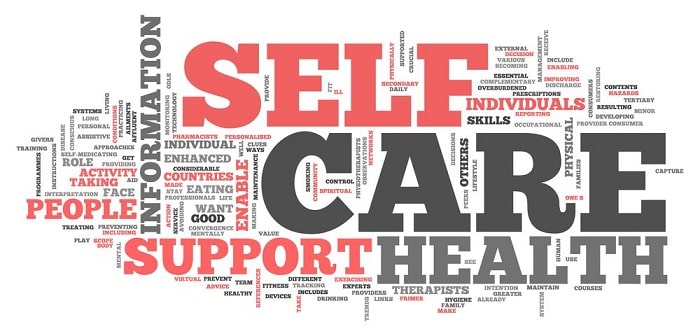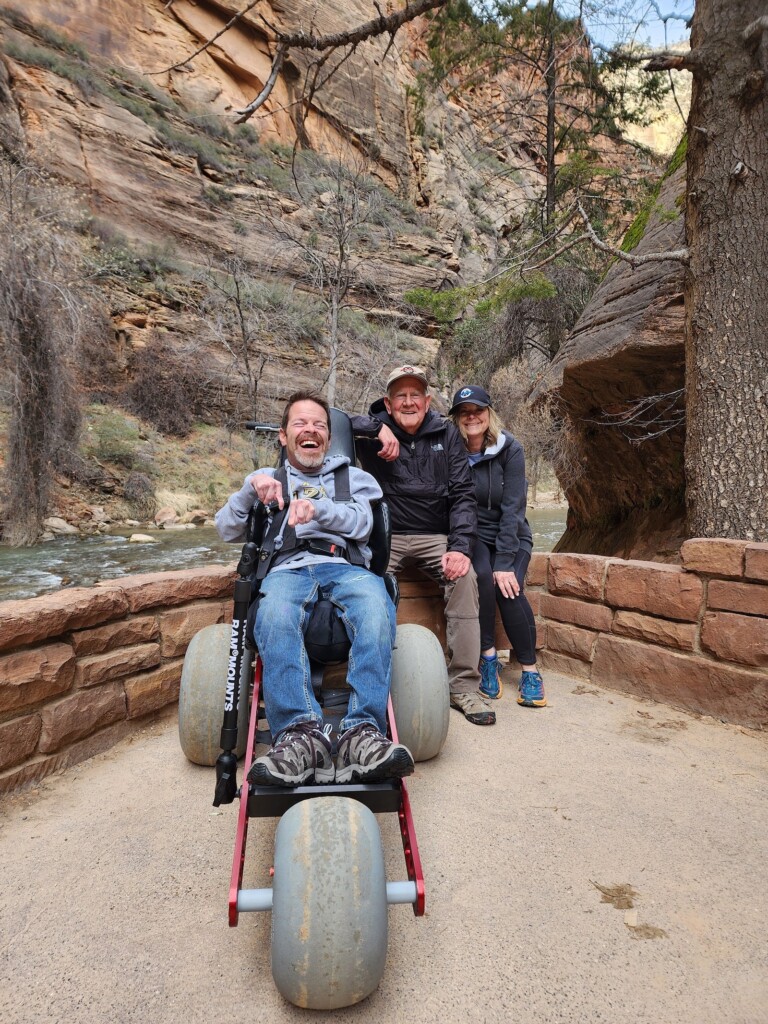
By Mike Brown, Co-founder of Next Level Recovery and Sober Living Properties
In addiction recovery, one hears a lot about being humble and making amends to others, as this is an important aspect of working through some of the after-effects the disease left in its wake. But alongside that humility is also a need to practice self-care since substance abuse has likely taken a huge toll on a person’s physical and mental well-being. Addiction can leave someone nutritionally depleted and weak. In order to restore overall health, it is imperative that self-care is right up there with sobriety as an important priority in recovery. Our mind and body are intrinsically connected. If we do not mind the needs of our physical health, our mental health will suffer. This instability will increase the risk of relapse. To be committed and vigilant, as is required for recovery success, you must also take care of your basic health and wellness needs.
So what is involved in post-rehab self-care? Recovering from any disease or injury requires special attention to nutrition, exercise and rehabilitation. Addiction recovery is no different.
Establishing New Self-Care Habits in Recovery
Beginning a new life in recovery necessitates creating a healthy daily routine. It may help to create a simplified daily checklist of habits that can have a positive effect on the mind, body and spirit. Making a list is helpful at the outset, as it takes time to integrate these habits smoothly into the daily routine until they become a habit. In essence, it takes someone about 21 days to establish a new habit, so it can initially be a struggle to remember to follow through with the new behavior. It also takes time to break an old routine or bad habit.
With this in mind, consider making a physical reminder at the beginning of this effort such as a reminder alert on your phone, an organizer app or attaching a sticky note to your computer or refrigerator to keep you committed to taking care of yourself.
Make Self-Care a Priority With These 8 Healthy Habits
1. Exercise. Getting regular exercise improves cardiovascular health, builds muscle, produces endorphins, improves cognitive functioning and aids sleep. Getting regular exercise can also lead to enhanced self-confidence and feelings of accomplishment, especially when fitness goals are set and achieved. Consider getting a minimum of 3-4 workouts per week of 30-60 minutes each using aerobic activities such as walking, running, hiking, kayaking, dance fitness, cycling, swimming, spin class, rowing or kickboxing.
2. Nutrition. One of the most effective ways to restore physical and mental health in recovery is through a healthy diet. Make it a daily habit to incorporate lots of lean proteins (fish, turkey, chicken and lean beef), nuts and seeds, leafy greens and fresh fruits, whole-grain breads and pasta. Amino acid supplements, folic acid, zinc, B-complex vitamins, thiamine, and vitamins A and C supplements may be in order. Avoid added sugars, processed foods, sodas, and excessive caffeine. Drink plenty of water and eat regular meals. This will help repair the damage to tissues or organs, enhance the immune system, improve energy levels, and boost mood.
3. Nurture your relationships. One’s social network should include solid relationships with trusted friends, loved ones and family members. Authentic social relationships are those that involve face-to-face interaction, handshakes, hugs, eye-to-eye contact, smiles, laughter, compassion and empathy. Family relationships, both immediate family and extended family, should be nourished through regular visits. Romantic relationships and marriage partnerships need to be nurtured to ensure continual connective emotional bonding. Practice
recovery skills, such as effective communication techniques, conflict resolution, and emotion regulation to help improve the quality of these important relationships.
4. Take time for reflection and gratitude. When it comes to our spiritual selves, each individual has their own unique definition of what they believe in. Spirituality is an important and essential aspect of overall well-being, but how that is defined and practiced is up to each person. Set aside some time every day for meditating, giving thanks, prayer, journaling, reflection or reading spiritual or inspirational books. This quiet time can lead to important new insights and personal growth that will lead to overall improved well-being.
5. Practice relaxation techniques. Learning how to curb stress and increase relaxation can be an important recovery tool. The physiological effects of practicing yoga, mindfulness, deep breathing techniques, massage therapy, acupuncture, gardening, and meditation are substantial. Including these activities into the regular routine can enhance circulation, reduce the stress hormones cortisol and adrenaline, improve mood and lead to better sleep quality.
6. Cultivate a sober lifestyle. Shifting from a life of substance abuse to one of sobriety isn’t always an easy transition to make. Once a sober lifestyle is embraced, it can become a source of deep joy and peace for the individual in recovery. Be proactive in shaping this new healthy lifestyle as part of the self-care piece of recovery. Seek out venues where others in recovery convene, such as sober Meet Up groups, sober gyms, dry bars, or sober travel groups. Keep in Mind that a sober lifestyle doesn’t always involve others. Some degree of solitude can also contribute to a healthy sober lifestyle.
7. Rediscover your passions. During active addiction everything took a backseat to the substance use. This means that hobbies and interests once enjoyed were likely shoved aside and forgotten. In recovery, it is important to rediscover the things that feed your soul. It could be that a long-forgotten passion for the arts could be rekindled and nurtured by going to concerts, plays or art galleries. Maybe it is time to take up new passion by enrolling in a class or signing up for a seminar. Maybe you enjoyed volunteering at local charities and want to again become involved in those activities. Maybe you might want to plant your own vegetable garden or start a home DIY project. Find something to be passionate about in recovery and cultivate it.
8. Get quality sleep. Without adequate, quality sleep it is difficult to achieve the improvements in mood, cognitive functioning and well-being desired in recovery. To achieve quality sleep stick to a regular bedtime that allows for a minimum of 7 hours of sleep. To enhance sleep quality, do not eat after 7pm, avoid caffeine after 3pm, turn off electronics an hour before bed, take a warm bath in Epsom salts or lavender oil and read for a while before turning off the lights. If noise is an issue, buy a white noise machine to blend away any sleep-disturbing sounds. If needed, blackout curtains or a sleep mask can also aid sleep.
After Rehab Combine Self-Care with Continuing Care Efforts Self-care following rehab is essential. This involves caring for all aspects of your
well-being while also accessing continuing care services to further reinforce sobriety. No matter how confident a person is after completing a rehab program, it is wise to remember that it is much easier to maintain sobriety in a structured, controlled rehab environment than out in regular life. Continuing care services combined with self-care efforts can help the newly recovering individual stay the course, even in the face of stressors or triggers, and ultimately reach important recovery goals.
Here are some of the most effective and helpful aftercare strategies to incorporate into the overall recovery planning:
▪ Sober living housing. There is no question that returning to a home environment that is unsupportive or hostile towards your recovery is a recipe for relapse. If the home setting involves individuals who openly use drugs and alcohol or where family dysfunction creates excessive stress, it is not conducive to a lasting recovery. A sober living environment offers a supportive home setting that is substance-free, allowing the person to practice using recovery tools and stabilizing before transitioning back to home life.
▪ Outpatient therapy. Regularly scheduled individual or group therapy sessions provide a consistent source of ongoing support in recovery. After a formal rehab program where constant psychological support was available, the individual is sure to experience some challenges as they transition back to community, family and work. Having someone available to talk things over with or from whom to learn more targeted coping skills can be an essential tool in the first year or two of recovery.
▪ Recovery community. Social support is an essential recovery element. Actively participating in a recovery community provides fellowship and peer support in a safe space. Find the group that fits your needs and personal preferences and embrace it. The most recognized recovery groups are 12-step programs such as A.A. or N.A. These groups are widely available across the country and free of charge. If the 12-step philosophy is not a fit there are other non-12-step groups available such as SMART Recovery, Women for Sobriety, Secular Organizations
for Sobriety (S.O.S.), and LifeRing Secular Recovery. Prioritizing recovery must include prioritizing self-care. You cannot have one without the other. Taking care of your emotional needs and general health can significantly reinforce recovery and reduce the risk of relapse. As each day passes and sobriety is further cemented, daily life becomes increasingly populated with feelings of positivity and renewed self-worth.
About the Author
Mike Brown is the co-founder of Next Level Recovery and Sober Living Properties, serving the Salt Lake City region. Mike has worked tirelessly for 15 years to help others attain the same gift of long-term sobriety that he has been gifted with, and is committed to making a positive difference in clients’ lives. Today, Next Level Recovery takes a practical and therapeutic approach to addiction and treatment, and supports clients in an environment that promotes self-advocacy, health and wellness, and independence.





